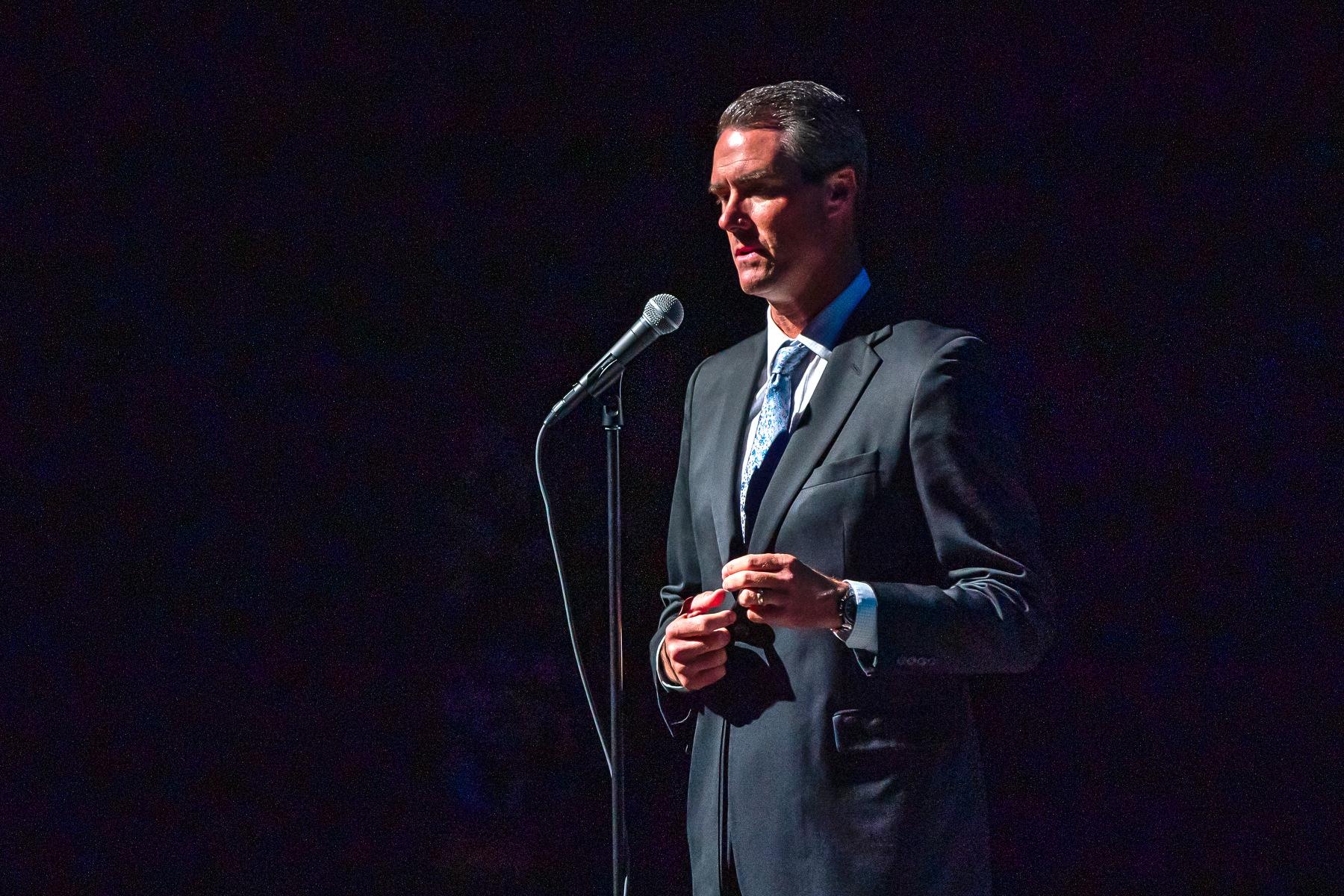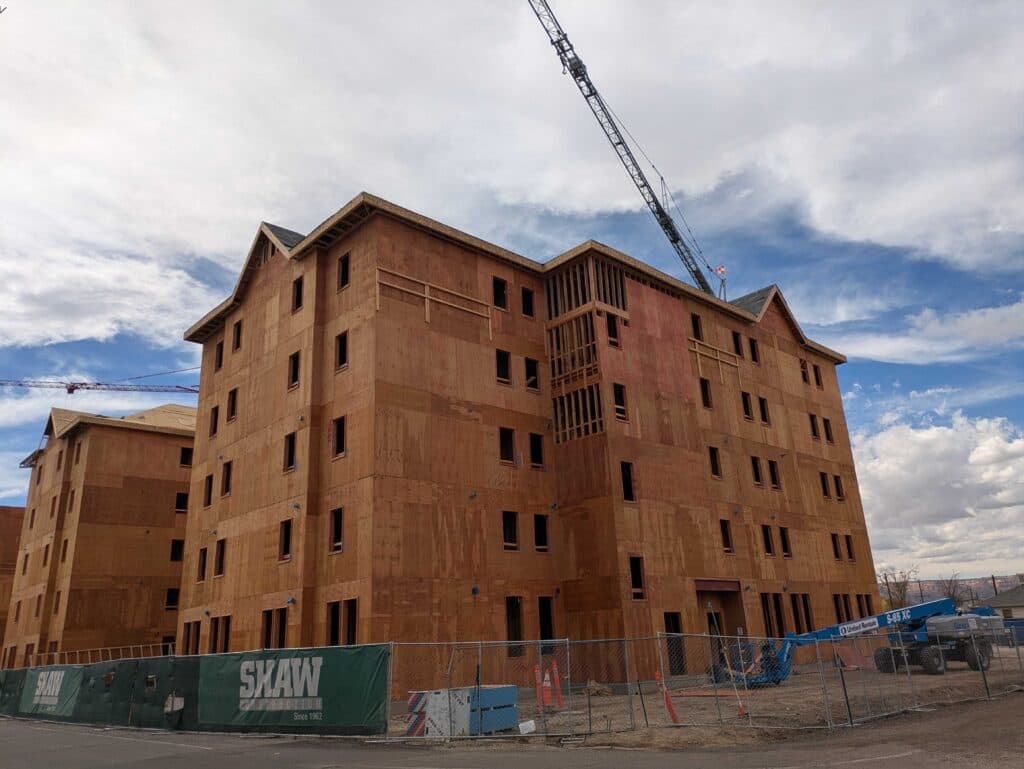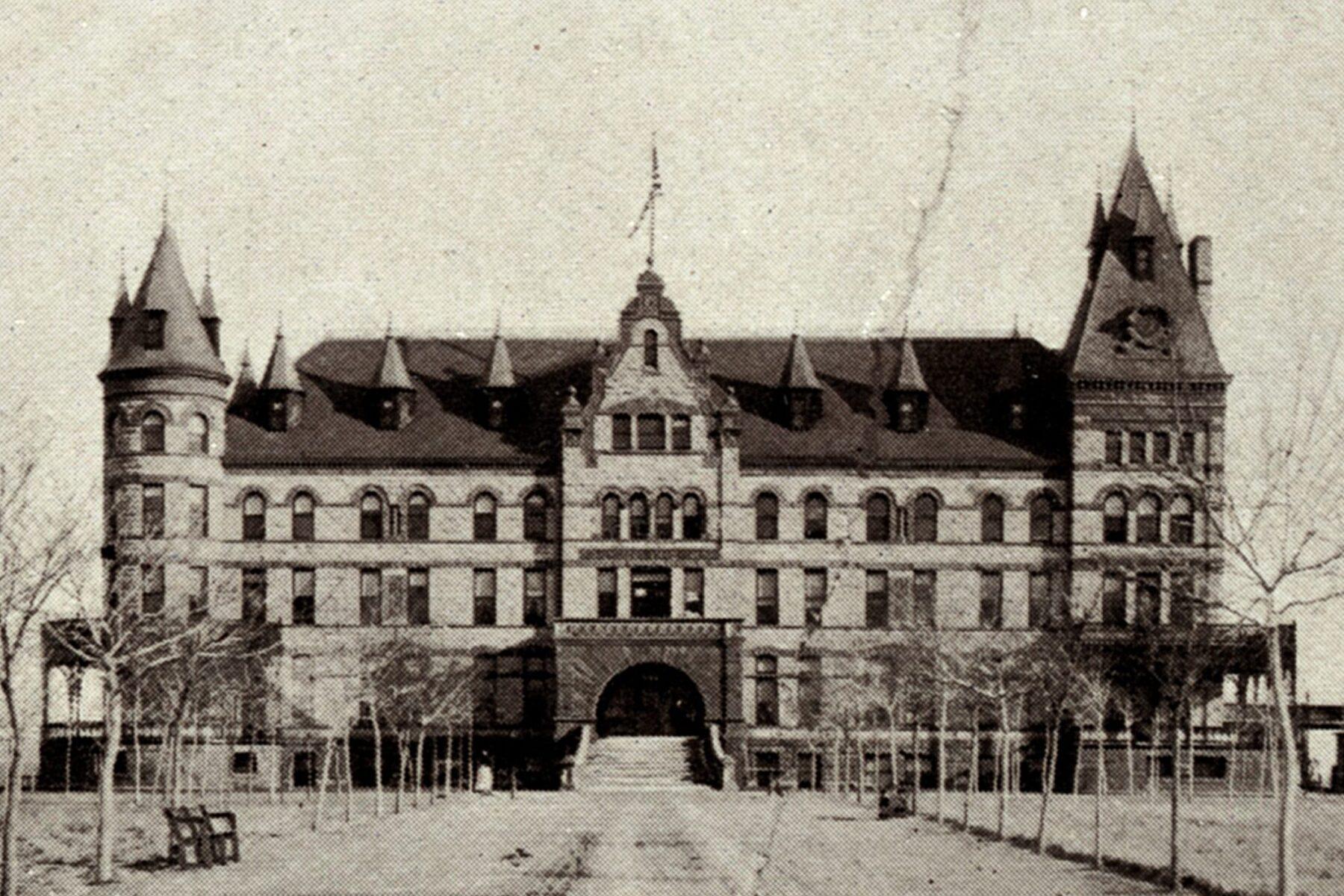
The Western Slope’s largest university is celebrating its 100th anniversary this year during a time when skepticism of higher education is high and funding for higher education is on track to be low. But its president says the university has faced adversity before.
“Oh, I think the next century is going to be even better than the first,” John Marshall told Colorado Matters Senior Host Ryan Warner.
Colorado Mesa University began as a junior college and in its time it’s been known as Mesa College, Mesa State College and, starting in 2011, Colorado Mesa University. This fall it’s celebrating the century mark with a block party, a documentary and even a beer. But elsewhere in the country, universities are having their funding pulled and their programs scrutinized.
“Like everything else, maybe in 2025 America, we've allowed this almost cartoonish binary to materialize. Where on the one hand, a choice appears to be federal authorities taking over a university which, by the way, feels totally unacceptable to me. I think that's really not good for this country if we've got elected officials and politicians taking over our universities,” Marshall said. “But on the other hand, are universities on a track that should be continued? And the answer to both of those I think is neither of those is very good for America. We can find a better middle ground.”
Marshall spoke with Warner about the climate around higher education, budget cuts from the state and how Grand Junction went from “passing the hat to try and keep payroll met” to being home to a four-year institution entering its second century.
Below are takeaways from that conversation. This interview has been edited for length and clarity.
On why he’s glad he’s not at Harvard
Warner: Are you grateful that you're not at Harvard?
Marshall: Every day.
Warner: Every day?
Marshall: I mean, look, I think you would be foolish not to reflect on the last several hundred years that the higher ed in America and the contributions that have been made. But I fear that, over time what's happened is, that the elites have become a replication machine.
Grandma and grandpa went there, had 2.1 kids who turned around and went to the same elite institution, who had 2.1 kids who turned around and went to same elite institution. And they're not really changing anything about America. They're simply replacing themselves economically, socially, culturally, politically.
What we're trying to do is fundamentally different. What we're trying to do is provide kids who haven't typically had access and give them a seat at the table trying to make sure it's affordable, it's accessible, and we're showing up in a way that they need us to. That, to me, feels really different. And you do have to observe some of these critiques and say, well, why would somebody charge $100,000 a year for college? Why would that be? Especially if you have an endowment where you could scholarship every single kid. And the answer is because you're trying to keep people out. We're trying to do something fundamentally different. We're trying to get as many people in the door as possible, make them feel welcome while they're here and leave with something really valuable that can improve their family when they leave.
On tough times in the past
Warner: Colorado Mesa University is marking a century. Have you heard about a sink or swim, live or die moment for the institution before your arrival?
Marshall: 1925 is when we start and the state says, ‘Okay, you can have your little college, but we're not funding you.’ Right. And you think, ‘Well, that's kind of crazy.’ So they didn't fund us. Well, we didn't have any local funding either. And there are stories of, literally, the Lions Club passing the hat to try and help keep payroll met. In 1937, the community comes together, puts a mill levy on the ballot, and it passes 95 percent to five percent.
Can you imagine any issue today passing 95 to five? What that tells you is from the earliest days of this institution, this community has been all-in for CMU. It's continued through the 70s. It continued in the 90s when they made a decision when we were landlocked to say, the community is going to support the growth of this institution. And here we sit in a state-of-the-art theater on property that was acquired with help from our local partners to keep this place growing and thriving. So it's a through line through 100 years where this community has showed up time and time again when we were needing them the most.
On distrust in higher education
Warner: Who's finding middle ground right now President Marshall?
Marshall: Well, this is the question. If it can be done, can it be done here? Can we aspire to do something that feels like we're cutting a path where we're recognizing in humility some of the misfires and excesses of higher ed over the last few decades and try and get back to something that feels more humble, more accessible, more affordable and more relevant? If we can do that well, I kind of think we're in a better position to reengage the public in this handshake social contract, which is to say: We are going to do these things and uphold your expectations, and we really need independence and autonomy in exchange for that. And there's a tension there. And when those things get out of balance is when we find ourselves in moments like now.
Warner: Why do you think courses like gender studies or queer studies or even certain aspects of our history, if it's African-American history or Chicano history, why do you think these things are in the crosshairs?
Marshall: Well, I'm not an expert in all of the political happenings. What I will say is that when you come to college, the expectation is that you're going to be challenged intellectually, that you're going to be taught how to think critically. That's a learned behavior, but that's, you're not going to be told what to believe. And I think our challenge in this and the opportunity really is how do we challenge all of our students? They're all coming from very different places, whether it's Denver East High School or a sheep ranch in Meeker or the Navajo Reservation. These kids are all coming from very different places.
Our challenge is how do we help them not see all those differences as a threat, but as an opportunity to learn and grow, to help them follow their conscience, but to really think carefully and critically about things as best as we can … I think that's at sort of its core what an education ought to be, and if we can deliver on that and, without fear or favor, allow the student in the front row of a class, hypothetically, who's in a Black Lives Matter t-shirt or a MAGA hat to raise their hand, ask hard questions, and be welcome in that class. If we can do that well, that would be something that feels like something that we could aspire to,
Warner: But that requires something of both the kid in the MAGA hat and the kid in the Black Lives Matter shirt.
Marshall: It requires something from all of us. Yeah.
Warner: There's always been a healthy base of international students on this campus. You mentioned in your Daily Sentinel op-ed that Korean students began arriving as far back as the 1950s. How will CMU maintain that as our country seems to become less hospitable? I mean, we're seeing dips in for visitation. Are you seeing a lower interest, by the way?
Marshall: So it's really highly variable by region of the world. Interestingly enough, we've had a lot of success over the years with the Nepalese community, and that's a community that we've welcomed. We've got faculty, we've got students. We've really worked to try and build that. And of course, these things are always sort of funny and organic over time.
Warner: I think they are drawn to the mountains because those mountains make them feel like home, when I've spoken with folks from Nepal in the Front Range.
Marshall: That's right. There's a lot of analogs there, but we're going to see some reductions in that. I think every university is seeing it's harder for students to get the visa to come over. And so I don't think that's a positive thing for CMU. And so our task will be; how do we continue to try and be the kind of destination that they want to come, that we walk with those applicants through that process and try.

On state budget reductions to higher education
Warner: Governor Polis took $12 million out of higher education to close a shortfall in Colorado's budget. What might that mean for you?
Marshall: Well, there's some real time cuts that are happening to us. Fortunately for us to this point, they've been somewhat modest, but I think anybody who's paying attention can see there may be more on the horizon.
Warner: What’s being cut already?
Marshall: Well, just our general operating (budget) took a rescission as well as some specialty programs around cybersecurity and rural healthcare. Those cuts were, against the entirety of our budget, relatively modest. And so I think for us, that's probably as important of an indicator of what's coming as the cut themselves. But what I will say is that we are actively trying to see this opportunity as that: Meaning, there will be institutions that step back and retrench and sort of hunker down to weather out the storm. And I think we're not doing that. We're going to step into this as hard as we can. And here's what I mean. We've partnered recently with a philanthropic organization to help double the number of first-generation coaches and advisors serving our students. Meaning while things are tough on the budget side of things, we've used some private philanthropy to try and bolster the success of our students who are coming in.
Warner: A member of the Colorado Legislature's Joint Budget Committee also gives an occasional business lecture at CMU. Rick Taggart told the Daily Sentinel, he thinks budget cuts may not be over for the state. Do you expect that they will come again for higher education?
Marshall: Yeah. I mean, I think anybody who's been around Colorado politics, any amount of time knows that when times get tough.
Warner: It's one of the first pots.
Marshall: Yeah, it's first on the chopping block, which I think is lamentable and regrettable. But I will say this. All of our institutions in Colorado are not funded equally. Okay. So it's not like we're all funded at the same level. And so one of the cases that I'm looking forward to making to the legislature is we don't fund all these institutions the same. So I'm not sure why we would think we need to cut them all the same. I realize that that is a conversation that not everybody is going to want to have, but that is the math and it is the fact. And from where I sit, we're in a tough spot. So let's make some hard decisions.









